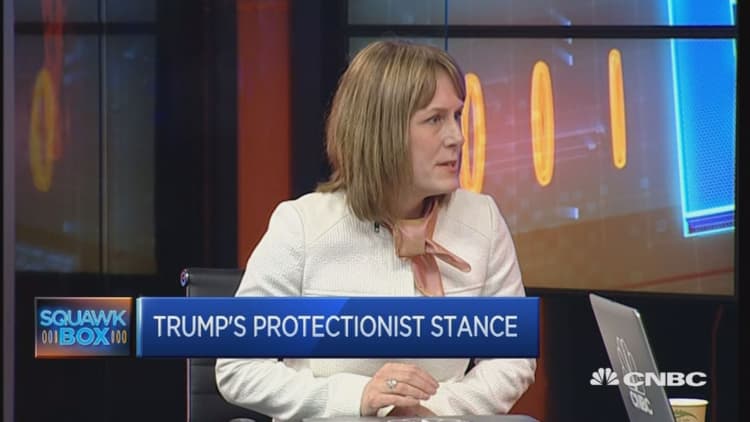America's expected withdrawal from the much-ballyhooed Trans-Pacific Partnership (TPP) is widely expected to prop up an alternative trade deal backed by China. Some analysts aren't so sure.
The U.S. exit from the TPP is set to be finalized once president-elect Donald Trump enters office next week and may jeopardize the fate of the TPP, the world's largest trade deal. With Washington backing away, that leaves the door open for Beijing to push forward the Regional Comprehensive Economic Partnership (RCEP), which was first launched in 2012.
But infighting among RCEP participants, particularly India, may plague the pact regardless of the TPP's fate.
RCEP covers 16 nations, versus the TPP's 12 members, but many believed it will be an easier deal to ink because it's nowhere as far-reaching as the TPP.
RCEP aims to knit together bilateral free trade agreements among the Association of Southeast Asian (ASEAN) nations with six external countries: China, Japan, South Korea, Australia, New Zealand and India. The TPP on the other hand consisted of a brand new agreement that covered numerous provisions missing in RCEP, including labor standards, environmental protection and anti-corruption.
However, the contrasting priorities of the RCEP players are proving to be the biggest obstacle to success. Members are floundering to bring RCEP to conclusion and they have postponed the deadline from Dec. 2016 until the end of 2017, pointed out Meredith Miller, vice president at Albright Stonebridge Group.
One of the prickliest topics on the agenda is intellectual property (IP).
Japan and South Korea are suggesting IP policies that may increase medical treatment costs and restrict access to affordable generic medicines for people in several countries, prompting vocal backlash from New Delhi ministers as well as international health organizations. India is often dubbed as the 'pharmacy of the developing world' for its massive production of generic medicines that treat communicable and non-communicable diseases.
"Proposals in the RCEP negotiations are trying to introduce IP measures far tougher on access to medicines than what is required under international trade rules," Leena Menghaney, South Asia head of Medecin Sans Frontiers' Access campaign, said in an April statement.

More broadly, Indian protectionism has been singled out as one of the main stumbling blocks to RCEP's success.
"Just like in the World Trade Organization (WTO), India has been very recalcitrant on market access opening...India is very loathe to open its markets to anyone, even its friends and allies," said Sean King, senior vice president at Park Strategies.
Indeed, many have complained about India's restrictive trade policies, including the U.S. which has yet to ink a free-trade deal with Asia's third-largest economy.
Washington took New Delhi to the WTO dispute settlement body back in 2012 regarding a 2007 Indian import ban on U.S. poultry and poultry products, which was introduced as a means to prevent bird flu outbreaks. The WTO ruled in favor of the U.S., noting that India's policy was "discriminatory' and 'trade-restrictive."
Of course, it's not solely India weighing on RCEP talks.
"The problem with RCEP overall is that it's more countries and it's less open countries" King continued, noting that many RCEP players aren't open in the way that most TPP countries were.
Indonesia has also struggled to meet the standards of other negotiating partners when it comes to accessibility, Miller noted.
Spearheaded by China and excluding the U.S, RCEP is expected to enhance Beijing's influence among its Asian peers. The mainland is already the biggest trading partner for the bulk of Asian countries but it's gradually increasing its political and economic sway by leading projects that impact the region, such as the Asian Infrastructure Investment Bank and the One Belt One Road infrastructure program.


